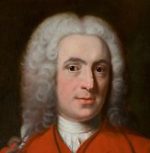Swedish botanist, biologist, taxonomist, and physician Carl Linnaeus (1707–10 January 1778), also known as Carl von Linné (Swedish pronunciation) following his ennoblement in 1761, is credited with formalizing binomial nomenclature, the current system of naming species. The "father of modern taxonomy" is what he is referred to as. His name is spelled Carolus Linnaeus in Latin for many of his writings and Carolus a Linné after his 1761 ennoblement.
He was born in Rshult, a rural area of Smland, in southern Sweden, the son of a curate. At Uppsala University, where he spent the most of his further schooling, he started offering botany classes in 1730. Between 1735 to 1738, he lived abroad, studying and publishing his Systema Naturae's first edition in the Netherlands. He afterwards went back to Sweden and started teaching medicine and botany at Uppsala. He undertook a number of expeditions in Sweden in the 1740s to locate and catalog plants and animals. He continued to gather and categorize animals, plants, and minerals in the 1750s and 1760s while also writing many books.
He received a note from philosopher Jean-Jacques Rousseau saying, "Tell him I know no greater man on Earth." Shakespeare and Spinoza are the only two non-living people I am aware of who have had a more profound influence on me, according to Johann Wolfgang von Goethe. Linnaeus was a poet who just so happened to become a naturalist, according to Swedish author August Strindberg. Princeps botanicorum (Prince of Botanists) and "The Pliny of the North" are two nicknames for Linnaeus. He is regarded as one of the pioneers of contemporary ecology.
The letter L is used to denote Linnaeus as the source for a species' name in botany and zoology. Older publications sometimes use the abbreviation "Linn." According to the International Code of Zoological Nomenclature, Linnaeus's remains serve as the type specimen for the species Homo sapiens because he is the only specimen that is known to have been examined.
Early life
On May 23, 1707, Linnaeus was born in the Sweden village of Rshult. He was the first child born to Christina Brodersonia and Nicolaus (Nils) Ingemarsson, who eventually took the family name Linnaeus. He had four siblings: Anna Maria Linnaea, Sofia Juliana Linna, Samuel Linnus, and Emerentia Linna. Samuel Linnus eventually succeeded their father as the rector of Stenbrohult and published a book on beekeeping. When he was a young child, his father taught him Latin.
Nils, a member of a long line of farmers and priests, served as the curate of the Smland settlement of Stenbrohult, was an amateur botanist, and was a Lutheran preacher. Christina was the daughter of Samuel Brodersonius, the rector of Stenbrohult.

